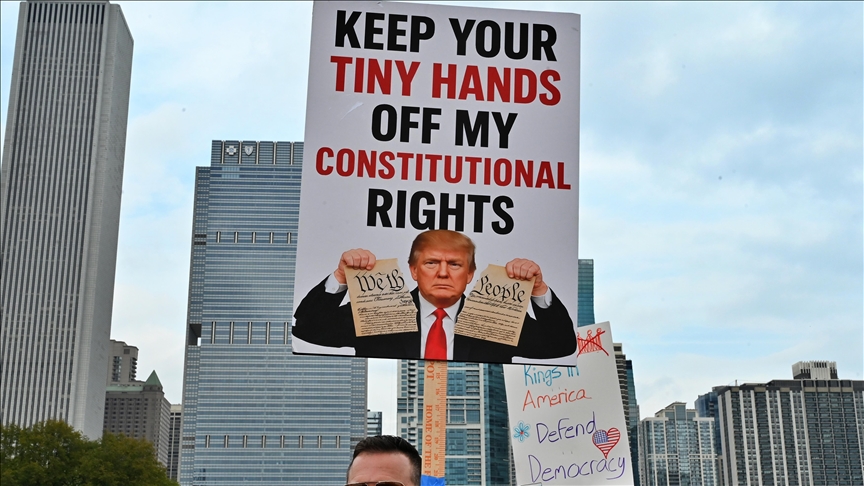 Demonstrators gather at Butler Field in Grant Park for the 'No Kings! Rally and March' on October 18, 2025, in Chicago, Illinois.
Demonstrators gather at Butler Field in Grant Park for the 'No Kings! Rally and March' on October 18, 2025, in Chicago, Illinois.
ISTANBUL
About two-thirds of Americans believe the country is “seriously off on the wrong track,” while just under one-third believe it’s heading in the right direction, according to a new poll.
Most Americans appear uneasy, with just over half saying the economy has declined under President Donald Trump, according to an ABC News/Washington Post/Ipsos poll conducted through Ipsos’ KnowledgePanel and reported by ABC on Sunday.
Most feel that both political parties and the president are disconnected from the public, and concern about the government shutdown – now over a month old – continues to rise.
Far more Democrats (95%) and independents (77%) than Republicans (29%) say the country is “pretty seriously off on the wrong track.”
Larger shares of Black (87%), Hispanic (71%), and Asian (71%) Americans share this view compared with white Americans (61%). Majorities across urban, suburban, and rural communities — as well as among people of different education and income levels — also believe the country is headed in the wrong direction.
Although 67% now say the nation is moving in the wrong direction, that figure is down from 75% in November 2024, ahead of the presidential election that returned Trump to power.
About six in 10 Americans blame Trump for the current rate of inflation, while more than six in 10 disapprove of his handling of tariffs – thought to have pushed up prices – the economy, and the federal government overall. Majorities also express disapproval of his approach to several other issues.
Additionally, 64% of Americans say Trump is “going too far” in his efforts to expand presidential power.
However, 68% of Americans also say the Democratic Party is “out of touch with the concerns of most people in the United States today,” compared with 63% who say the same about Trump and 61% about the Republican Party.
Nearly half of Americans, at 48%, say the nation’s global leadership has weakened under Trump, while 33% believe it has strengthened and 18% think it has stayed the same — figures that have changed little during his second term.








